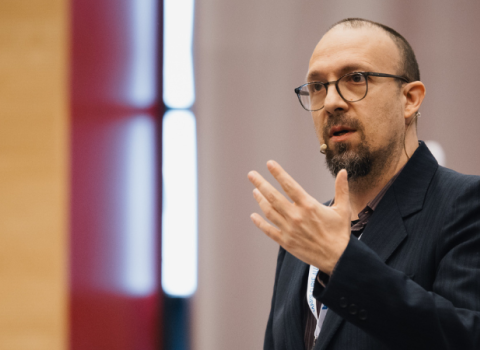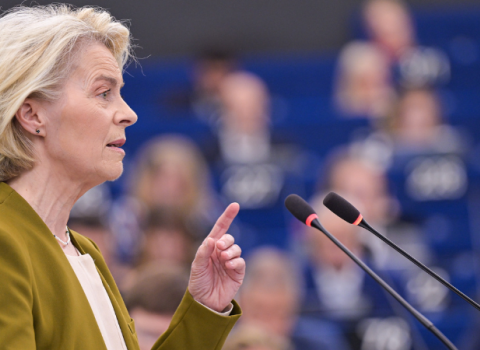The 35 projects aim to foster EU industrial leadership in telecomms networks

An EU initiative to develop next-generation telecoms networks has awarded its first €250 million in research and innovation grants to 35 projects, as part of the Smart Networks and Services joint undertaking.
The awards were made following the first call for proposals under the €900 million Horizon Europe partnership, which got off the ground in 2021.
With these projects, the EU hopes to be among the first to develop 6G telecoms networks, avoiding past mistakes that have left the bloc lagging behind on 5G.
The Smart Networks partnership involves the European Commission and the 6G Smart Networks and Services Industry Association, an association involving a number of European and non-European companies, including the Chinese company Huawei.
The EU’s position in 5G remains poor. According to a report by GSMA, an industry organisation that represents the interests of mobile network operators worldwide, Europe had only a 2.5% share of global of 5G connections, behind North America, China, Japan, and South Korea, in the last months of 2021.
Another GSMA report indicates that by 2025 the average adoption of 5G across Europe will hit 44%, while it will be 73% in South Korea, and 68% in Japan and the US.
The 35 R&I projects will foster Europe’s technology sovereignty in 6G by implementing an agreed research and innovation programme, whilst boosting 5G deployment.
The idea of the 35 projects is to develop experimental infrastructures for smart networks and carry out large-scale trials and pilot projects in sectors, such as media, internet of things, energy, construction, automotive, eHealth, culture, agriculture and education.
The projects are split between four workstreams. Stream A includes seven projects and will focus on 5G existing technologies, such as AI-based platforms used for autonomous cars. One of the projects, 6Green, will apply artificial intelligence to promote energy efficiency across 5G and 6G networks.
The second group ten of projects will look into more experimental 6G technologies.
Among these projects Hexa-x-II, which involves 44 partner organisations and is led by the Finnish telecomms company Nokia. Its aim is to create a platform to form the basis for future 6G standardisation. Nokia’s Swedish counterpart Ericsson, will also participate in the project.
Three projects in stream C aim to develop testing platforms to enable validation of 6G technologies.
Stream D includes large-scale development trials and pilot projects, which will explore and demonstrate 5G/6G technologies, advanced applications and services across a range of sectors.





 A unique international forum for public research organisations and companies to connect their external engagement with strategic interests around their R&D system.
A unique international forum for public research organisations and companies to connect their external engagement with strategic interests around their R&D system.